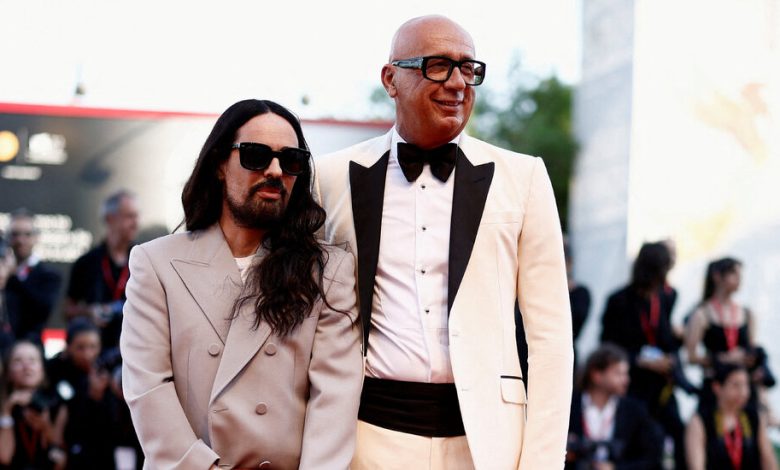Gucci C.E.O. to Exit Amid Leadership Shake-Up at Kering

For years, Marco Bizzarri was one of the most well-known and respected executives in the global luxury business. Bald and boldly suited, he was the architect behind the meteoric success of Gucci, the largest fashion brand in the stable owned by the French group Kering, which also includes Balenciaga, Bottega Veneta and Saint Laurent.
But on Tuesday, after a bruising year of declining sales and the abrupt exit of Gucci’s longtime creative director, Alessandro Michele, Mr. Bizzarri’s departure from the fashion house after eight years as its leader was announced quietly by its parent group. The news was buried in the third paragraph of a memo Kering released that outlined a major organizational shake-up as François-Henri Pinault, the chairman and chief executive, tries to write a new chapter for the fortunes of Gucci and the conglomerate.
In the same announcement, Kering said Francesca Bellettini, the chief executive of Yves Saint Laurent, would become the conglomerate’s deputy chief executive for brand development, a promotion that will require all Kering brand chief executives to report to her and make her one of the most powerful women in the luxury industry. Jean-Marc Duplaix, Kering’s chief financial officer, will also become a deputy chief executive, overseeing operations and finance.
“We are building a more robust organization to fully capture the growth of the global luxury market,” Mr. Pinault said in the memo. “I am confident that the changes we are announcing today will set Kering on a path to success and profitable growth over the long term.”
The management reshuffle follows the group’s recent purchase of the beauty brand Creed, the first big acquisition after its decision in February to create a separate beauty division — yet another signal of Kering’s plans for reinvention.
And it comes in the wake of multiple reports that Mr. Pinault is in advanced negotiations to buy a majority stake in the Hollywood talent agency CAA under the aegis of Artémis, his family investment company, which is the main shareholder in Kering. A spokesman for Mr. Pinault and Artémis declined to comment about those reports.
With Kering’s buzzy labels and outsize cultural influence, a dominant industry narrative has arisen casting the conglomerate as an archrival to LVMH Moët Hennessey Louis Vuitton, the largest group in the luxury industry. But LVMH, with more than 75 luxury brands, dwarfs Kering’s 14 labels in both sales revenue and market capitalization.
Lately, Kering has stumbled. Its stock performance has lagged that of key rivals like Hermes and LVMH, while several scandals and controversies inside some of the biggest Kering fashion houses have roiled the group.
Balenciaga, once the hottest brand on the fashion calendar, had a spectacular fall from grace last autumn after it was accused of promoting pedophilia in its advertising campaigns; it is still trying to regain momentum. Then there were the continuing headaches at Gucci, which generated two-thirds of Kering profits in 2021 and which, under Mr. Michele, was widely lauded for inaugurating a new era of magpie inclusivity and emotion in fashion.
However, Mr. Michele — largely unknown in fashion until he was handpicked by Mr. Bizzarri to lead the brand — left in November after disagreeing with management about Gucci’s direction. He was replaced by Sabato De Sarno, who will show his debut collection during Milan Fashion Week in September.
The public line — until now — was that Mr. Bizzarri, who oversaw the growth of Gucci revenues to more than 10 billion euros from €3.89 billion, would stay on to steer the house into its next era.
Instead, he will be replaced in September by Jean-François Palus, the managing director of the Kering group, who will fill the role until a successor is found.
In an investment note, Citibank called the moves “well-thought and logical, reinforcing decision-making, governance and succession while showing further determination to transform Gucci.”
